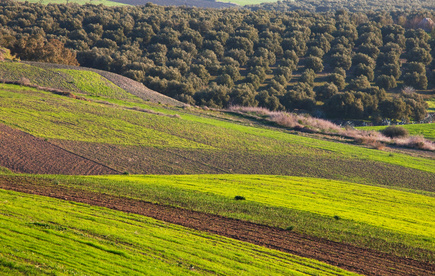Land investing is a very unique aspect of real estate investing. Raw land typically doesn’t provide income or tax breaks. And without a tenant to make the payments, there’s no amortized equity. Besides, with no income, borrowing to buy land can be risky business.
So why do it?
Well, as you might suspect, there are…lots of reasons.
In the studio for this episode of The Real Estate Guys™ radio show:
- Your well-grounded host, Robert Helms
- His dirt-poor co-host, Russell Gray
While the Holy Grail of real estate investing is passive income, it takes equity to acquire those income producing properties. And it’s wise to have adequate liquid reserves to handle maintenance, repairs, turnover and marketing. Of course, if you use debt to acquire your income properties (and why wouldn’t you?), then you’ll need to have additional reserves to service that debt when the property is sitting vacant. So liquid cash (currency of something else that is readily convertible into currency) can be pretty handy.
Of course, once you have all the currency you need, not to mention that once your empire of income properties starts pouring out piles of positive cash flow, you might want a place to park some of that money for the long term where tenant and toilets aren’t involved. Someplace not subject to counter party risk…and in something that will retain it’s relative value, no matter what happens to the currency.
 So reason #1 for buying land is long term preservation of wealth…even generational wealth. Think of it like gold or fine art.
So reason #1 for buying land is long term preservation of wealth…even generational wealth. Think of it like gold or fine art.
In fact, if you’ve been listening to James Rickards (author of Currency Wars and The Death of Money), he’s an advocate of using real assets (versus paper currency) as a means to store long term wealth.
In other words, instead of building up a savings account full of dollars, convert those dollars into real assets by buying things like land, precious metals and fine art. His point is that these items have a long term history of being relatively safe stores of value in unstable economic times.
Of course, if you’re strategic about the land you buy, you could end up doing more than simply storing value (hedging against inflation). You might actually make a profit (appreciation) as the land becomes more desirable (location and path of progress).
And if you’re feeling more ambitious, you could “force equity” by improving the land. This could be as simple as sub-dividing, changing the zoning or acquiring other entitlements. In this case, the land might appear completely unchanged to the naked eye. But the legal rights and permissions associated with the land could make the land more valuable to the next buyer.
Of course, that brings up the question of exit strategy. One of the basic tenets of real estate investing is not to get into a deal you don’t have at least one (and preferably more) clearly identified strategies for getting out.
When it comes to land, the best way to think about possible exits is to understand the life cycle of a property. Of course, land almost always lasts forever, so you could argue the life cycle is forever. But for our purposes, we’ll think of land as starting out as raw (no entitlements of infrastructure like sewer, power, streets, etc). From there, it becomes entitled, infrastructure is added directly on the land or nearby, improvements (buildings) are added, and eventually human beings live, work or play on the property.
Most people think of real estate only in it’s “finished” state (ready for human use). Land investors see the whole cycle. And each step along the way, value is added to the land. And anywhere along the line, the original land owner can hand off the development baton (sell) to the next guy who’ll take it to the next level.
Obviously, the closer the land gets to a finished product (and depending on what the finished product is), the number of potential buys grows and the property becomes more “liquid” (easily sold and converted to cash). Like a bus, you can get on at the beginning, in the middle, or near the end, and ride as long as you like.
Land investing is usually long term which makes it ideal for retirement funds. Especially because tax advantaged accounts don’t really need the tax breaks…and land doesn’t provide any.
But land, like any asset, can also be flipped quickly for a profit if it can be acquired or controlled at a price below what someone else might be willing to pay. Again, keep in mind that there are typically fewer buyers at the front end of the life cycle. Of course, you only need one!
One final note…
In addition to being a long term store of wealth, land can also be a powerful part of an international asset protection strategy. As FATCA compliance descends on the global investors, land is an asset which remains more private and unattractive to revenue starved governments than off-shore bank and brokerage accounts. So if privacy and asset protection are high on your list, you might consider using off-shore land as a place to store long term wealth. Who knows what that little Caribbean island will be worth some day???
Listen Now:
- Don’t miss an episode of The Real Estate Guys™ radio show! Subscribe to the free podcast
- Stay connected with The Real Estate Guys™ on Facebook!
The Real Estate Guys™ radio show and podcast provides real estate investing news, education, training and resources that help real estate investors succeed. Visit our Feedback page and tell us what you think!













